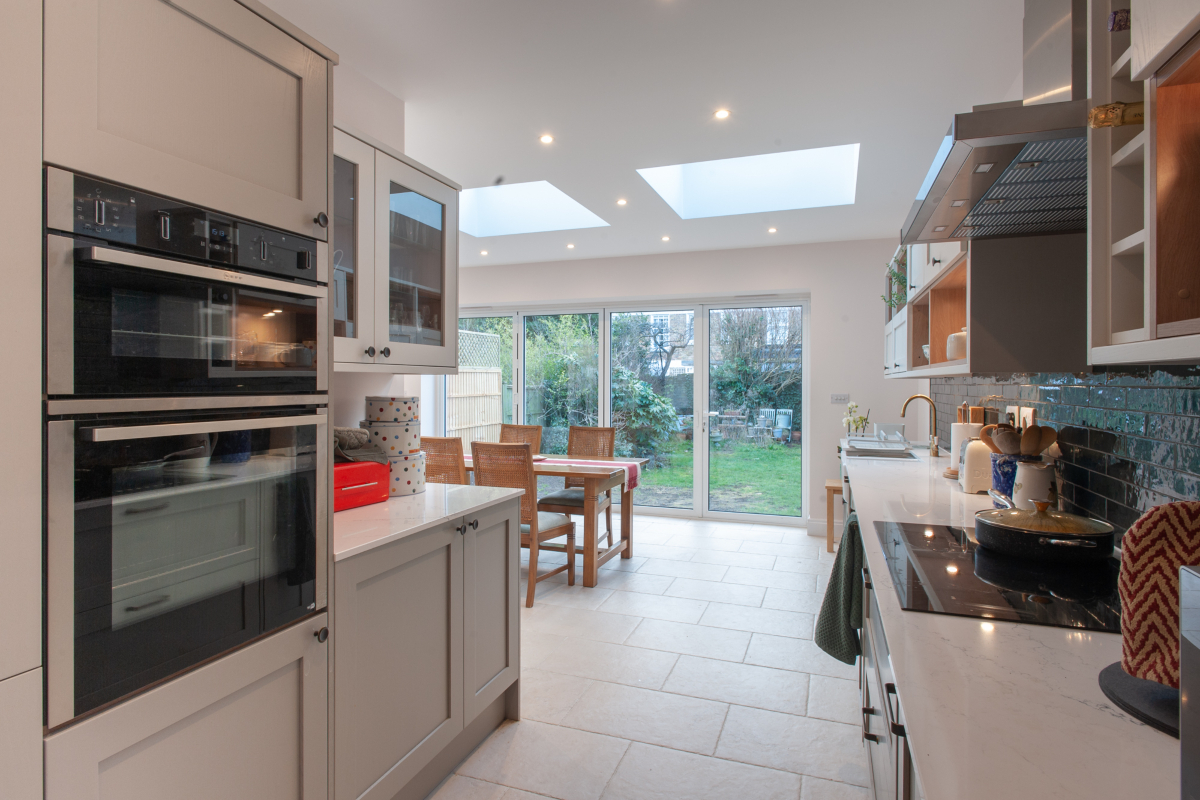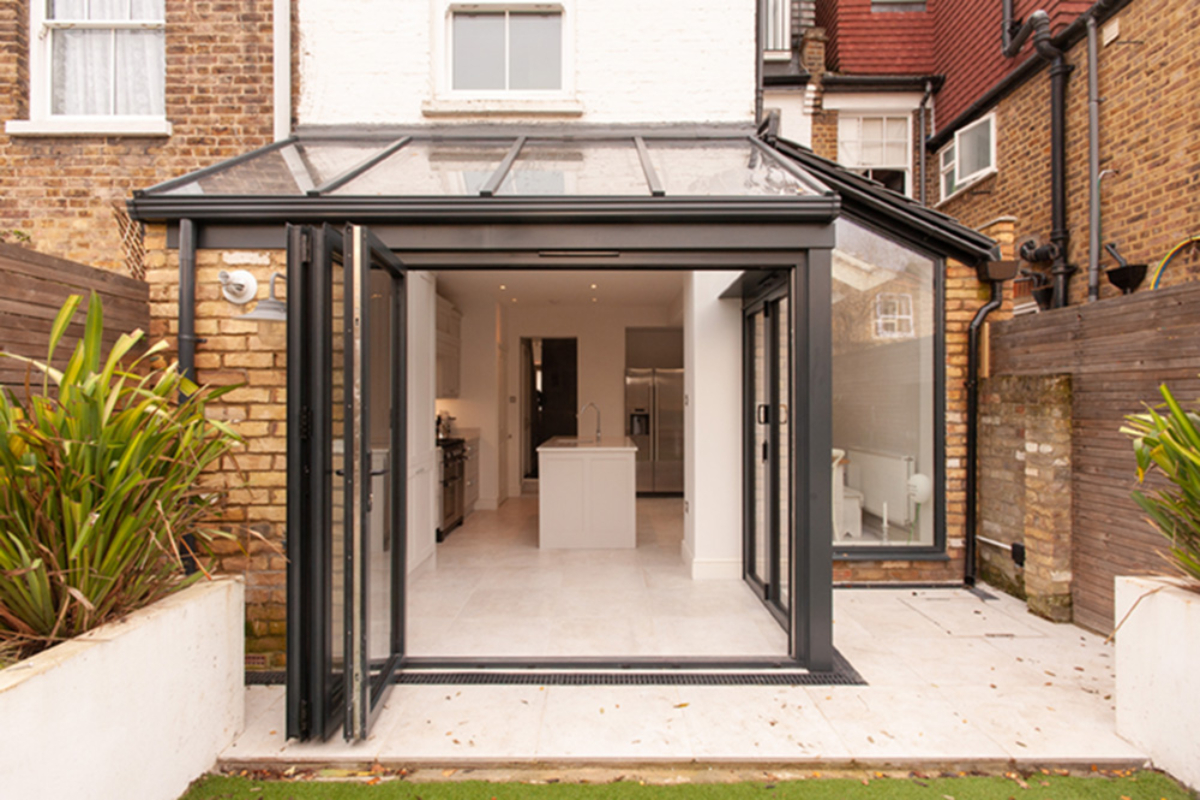With skyrocketing property costs, associated stamp duties, moving costs, and the overall inconvenience of changing addresses, it is no wonder that homeowners are reluctant to move houses even when faced with cramped and confined living spaces.
One easy and straightforward solution to this dilemma is to opt for a home extension.
However, the last couple of years have made even this relatively affordable option uneconomical for many. This is largely due to the rise in labour costs and building materials. The delays caused by the pandemic and consequent lockdowns didn’t help either.
But with a new year, homeowners are optimistic that their limited living spaces can finally be transformed and upgraded through home extensions. And to ensure that this extension falls well within your budget, here are some of the best ways to reduce the cost of your extension in 2022:
1. Plan your work and work your plan
Quite simply, planning saves money. By planning ahead, from the key details to the smallest variables, you can save valuable time and money. Some of the most important aspects that need to be planned and decided on well ahead are:
The budget –
Knowing how much you are willing to spend, and what you are willing to spend on, can go a long way in making the most out of your budget.
One way of ensuring you are not overspending is by calculating the value your extension is likely to add to your property. The extension should cost much less than this in order to be justifiable and profitable to you.
Another simple way to map out your budget is by obtaining a quotation from a reputed builder or extension specialist for the proposed extension. Many builders may offer this as a free service. A quotation allows you to plan your budget and design elements to prevent unpleasant surprises ahead.
The paperwork –
Getting the required documentation in order ahead of time, can be a vital step in ensuring the smooth flow of the extension build.
Visit the planning portal, coordinate with the local council, and inform your neighbours to ensure that planning permission, building regulations approval, and party wall agreements are all in place before commencing the build.
The design –
Naturally, the design of the house extension needs to planned well in advance to obtain the necessary approvals in time. It is also just as important to stick to these plans.
Determining even the minor design details and features such as the placement of light fittings and sockets early on should be in line with how you plan to utilise that extension. This also helps to avoid unnecessary changes later which could prove to be expensive.
2. Intelligent and innovative designing
The ultimate design of the extension is arguably the most crucial factor in reducing the cost of the extension. As such, it is imperative that this stage is handled with the relevant forethought and research.
Keeping the design of the extension simple and uncomplicated is perhaps the best way to reduce the overall cost of the extension. This helps your budget in multiple ways. For example, simple and small extensions generally do not require planning permission which helps you to save planning fees.
Complex designs, featuring multiple curves and corners, add to the expense, whereas square or rectangular structures are budget-friendly. Complicated design features also add to the time taken for the build. Which, in turn, adds to the labour costs.
Loft conversions and garage conversions are good, cost-effective alternatives to add space to your home in place of a traditional extension. But if you choose to proceed with an extension, it is advisable to consult a professional builder or architect during the design process. They can advise you on how to get the most out of your extension with smart design solutions and space-saving ideas.
Your design should be aim to incorporate features that enhance the utility of the room, as well as being easy to maintain and sustain, thereby saving you future maintenance costs.
3. Focus on being energy efficient
Modern homes emphasise the importance of sustainability and energy efficiency. And these practices help you to design an extension that could ultimately save you money on energy bills and utilities in the long run.
Incorporating energy-saving solutions when planning the lighting, heating, and insulation of your extension can drastically impact your energy usage, money, and even the resale value of your home.
Some common fuel-saving ideas for your extension include:
- Double glazing
- Smart placement of windows and skylights
- Utilising LED lights and globes
- Opting for energy-efficient appliances
- Investing in solar panels
- Choosing high-density building materials
All these tips and tricks can help you to create an incredible extension that not only adds space and value to your home, but also helps you to save your money.
4. Select the right building materials
The materials you choose with which to build your extension plays an integral part in the overall expenditure. This is because they affect every aspect of the build, from the design to the energy conservation.
When selecting or purchasing materials, try to follow these cost-saving strategies:
Choose readily-available materials –
Purchase off-the-shelf fittings instead of customised ones, and select materials which are easily available to reduce any delays during the build process. Concrete blocks, brick, and timber structures can be used for the floors, walls, framework, and cladding, to create the extension you want within your intended budget.
Reuse and recycle where possible –
Salvage what you can from the existing materials and buy what you can second hand. Most fittings can be reused with a quick clean and can even give a sense of character to the new extension.
Research the prices before buying –
Building materials, fittings, and fixtures come in a range of prices. Selecting the right brand, from the right vendor, buying in bulk or at wholesale prices, and even timing the purchase to coincide with seasonal sales, can save you a lot of money and reduce the overall cost of materials.
Buy more than you need –
Although it may seem wasteful, buying materials in excess can prove to be cheaper than trying to repurchase materials you have run short of, not to mention the additional delivery charges.
Sell what you don’t need –
The fittings or materials from the existing structure that cannot be reused, and those which are left over after the build, can be sold to recoup some of the costs incurred.
5. Hire the experts
When aiming to reduce the cost of any construction process, most people instantly choose to do away with the experts and try to DIY the build. However, more often than not, this proves to be their most costly mistake.
This is because the right professional advice can go a long way in helping you to maximise the potential of your extension at a minimal cost. And this advice far outvalues the fees or the professional charges of the experts.
Why? Because an experienced extension builder will know exactly where and how you can save money, and where you cannot afford to cut corners.
A trusted architect can help you design a simple, elegant extension that falls within permitted developments, a good builder can procure building materials at the cheapest price while optimising on the extension design, and a trusted project manager can oversee the entire process to ensure it is smooth and hassle-free.
The right professionals can help you to fulfil the vision of your extension without compromising on the quality of the build, and at the same time, help you to avoid mistakes that prove costly in the future.
Conclusion
We all crave that extra bit of additional space in our homes, and home extensions allow you to create that space at a fraction of the cost of moving houses.
However, the fluctuating building and construction costs can have many homeowners second-guessing the choice to extend. Fortunately, it is possible to do both, extend and save!
This is because home extensions need not be over-priced solutions. Beautiful and functional extensions can be built at a reasonable cost when done right, and with the right help and expert advice.
If you are hoping to extend but are hesitant for fear of over-spending, contact the incredible team at Good Design and Build today!
We provide complete project management of the entire extension process from start to finish while catering to your specific needs and budget!




